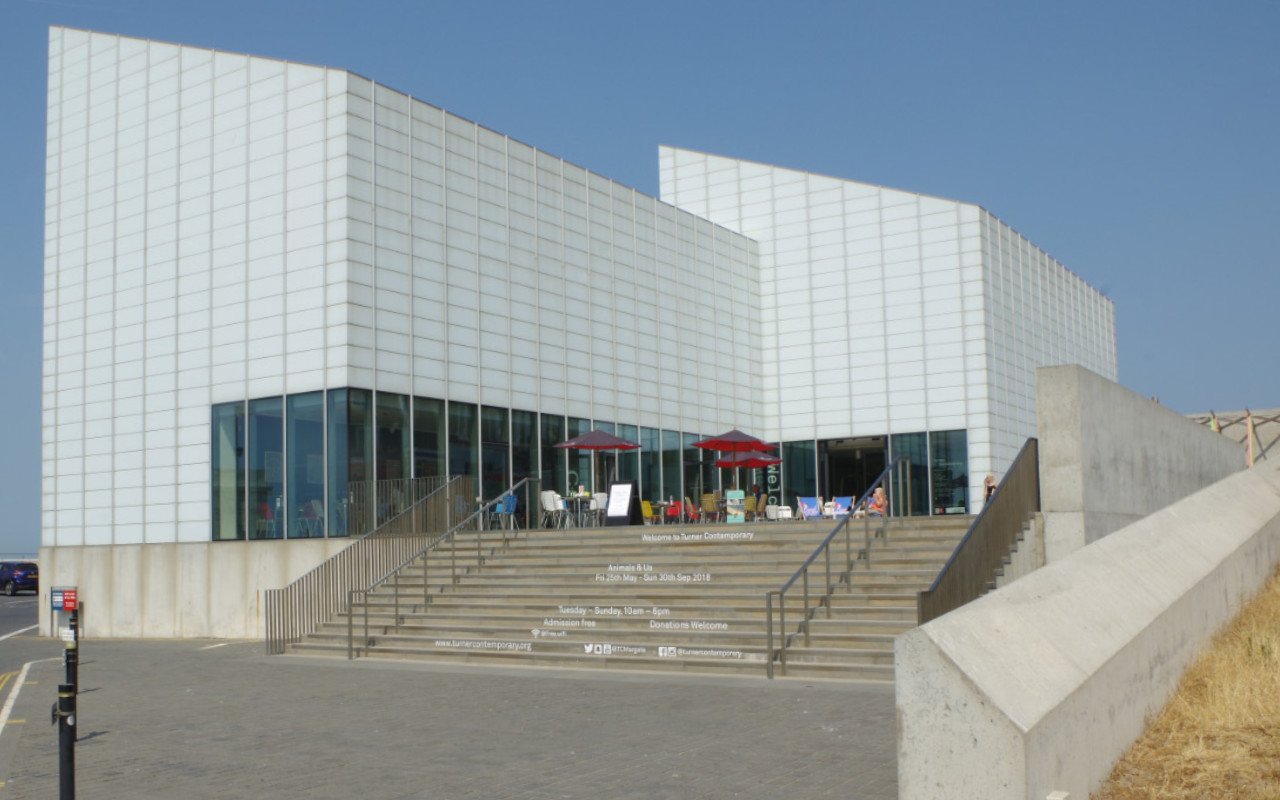
Turner Contemporary, Margate
Photo: Stephen McKay
Former Turner Contemporary worker wins redundancy tribunal
A tribunal rules the former staff member, who worked on a zero hours contract for ten years, was eligible for redundancy as her job role and relationship with the gallery matched that of an employee.
An employment tribunal has ruled in a favour of a former art gallery worker who was denied redundancy pay after her employment status was questioned.
In 2020, Turner Contemporary informed 40 employees working as gallery assistants and navigators that their roles were being removed in January 2021 and that they were ineligible for redundancy pay as they worked on zero hour contracts and did not have employment status.
Jan Wheatley, who worked as a navigator at the gallery for almost ten years, took the case to tribunal after turning down a settlement offer of £5,000.
READ MORE:
The tribunal took place in April, with a decision made public in August. The judge, Judge Corrigan, ruled that Wheatley was an employee and therefore not working on a contractor basis and was awarded £745 redundancy pay.
Wheatley’s role, carried out on a part-time basis, involved delivering workshops, exhibition tours and school sessions, as well as involvement in planning and preparing upcoming exhibitions.
The judge rejected Turner Contemporary’s claim each that shift was an isolated term of employment, noting that Wheatley also undertook leadership and facilitative roles and represented the gallery at external meetings. Some of her shifts around specific exhibitions had been booked months in advance.
The official judgement says “the claimant worked regularly and consistently for the respondent over a period of about 10 years in an ongoing relationship that had never been terminated”.
“[She] was in continuous communication about her availability and worked every exhibition throughout her employment…her work and role was integral to the structure of the organisation and the preparation and planning of its provision of exhibitions and other projects to the public. Her skills were clearly valuable in that preparation, planning and delivery.”
“Despite the labels applied by the respondent, her work was neither casual nor truly intermittent. It was regular part-time work.”
Employee status
The judgement ruled that the manner of Wheatley’s role matched that of a typical employee.
During her employment, Wheatley received staff discount and was paid by PAYE, with the court noting she was not issued a P45 at the end of every assignment.
All of Turner Contemporary’s navigators also took part in training sessions and staff outings, had a staff email, retained uniform and security passes between shifts and were named under the gallery’s staff section on its website.
Judge Corrigan ruled the relationships between Wheatley and Turner Contemporary was “nothing like that of an independent contractor” and concluded an employment contract was in place.
Wheatley, who represented herself at court after receiving supporting from campaign group Zero Hours Justice, advises workers with similar uncertainty around their worker status to keep hold of as much information as possible, including paper copies of email chains.
“As soon as our employment was stopped, we didn’t have access to our work emails. But because I had paper copies, I was able to easily reference things that contradicted what [Turner Contemporary] were saying.”
A spokesperson for Turner Contemporary said the gallery accepts the findings of the tribunal and “reasserts its commitment to continue to learn and to amend its practices”.
The statement adds the findings relate to a historic case and leadership has since changed. Current director Clarrie Wallis joined the gallery in January – three months before Wheatley’s hearing.
Wheatley also told ArtsProfessional that the “architect of the change of staffing” that caused the redundancies received a promotion after the staff cuts.
Apologies outstanding
Wheatley says some of the staff who lost their jobs are yet to receive compensation or an apology.
Some of the those affected agreed a settlement figure with the gallery, which involved signing a non-disclosure agreement stating they would not talk about the settlement or speak badly about the gallery in public.
According to Wheatley “only a handful” of the workers made redundant are yet to receive any form of financial payment.
She added she had hoped winning the case would lead to Turner Contemporary contacting or remunerating those yet to receive redundancy pay, which would likely be less than the £745 she received.
“When you take into account the amount of money spent on settlements and legal fees, if they’d just done the redundancies in the first place, it would probably cost less than half of what they’ve paid now.” she said.
“If they’d done the right thing in the first place, everyone would’ve got their due amount and we would not have had this bad feeling – it all feels so unnecessary.”
ArtsProfessional asked Turner Contemporary if the workers who had not had any settlement would get an apology or be compensated but did not receive any response.
Join the Discussion
You must be logged in to post a comment.